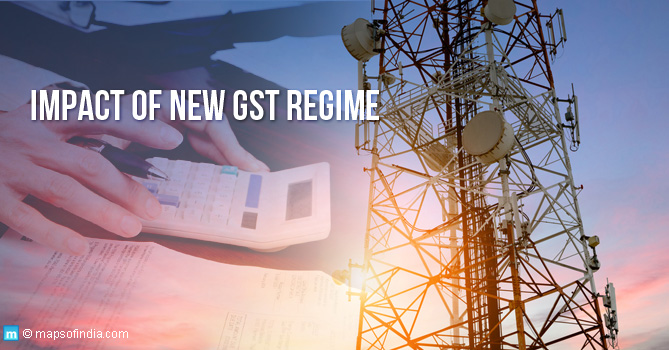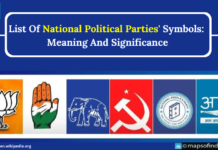The Indian Government has recently introduced a law increasing the working capital needed to operate in India and this has got the companies in the telecom sector thinking. The goods and services tax structure has been changed as well and the companies are presently assessing the situation before making their next move. There is no sufficient clarity regarding the tax rates and which goods they will be covering. So, the companies are unable to deal with their supply chain and price-related issues. There is also some major tussle going on in the Parliament regarding the Constitution Amendment Bill and this has only made them more apprehensive.
Read : Impact of GST on Various Sectors and Common Man
What Do Companies Feel?
Under the present circumstances the companies feel that they should be given a minimum time of 6 months from the day when the laws are formally instituted. This will allow them to be ready for GST as they would have proper information about the rates and which products and services are being covered by the same.
Dual-GST Structure
As per the new structure there will be a couple of rates. The central GST will be levied by the national government and the state government will be responsible for the state GSTs. Experts on GST have studied global trends on the issue and they say that a few goods and services will not be covered by the tax regime. This is especially applicable for those that are supposed to have a bad effect on people without sufficient money by way of earnings and savings. It is also being assumed that the national government may leave out a few things that will then be taken up by the respective state governments. In the same way states may also exempt a few goods and services from GST. According to the GST experts, the Indian Government would bring out a list of GST rates with upper and lower levels for the same.
At present there are various rates in circulation and there is no clear information on which goods and services will be subjected to taxation and which will be reprieved. According to Pritam Mahure, a chartered accountant based out of Pune, this has only made the situation more complex than what it should have been. The companies, as a result of the complexity, are not able to understand how their price and supply chain will be affected.
Situation of Multinational Companies
The multinational companies that are working in India are facing an even trickier situation. These companies normally finalise their budgets one year in advance. Since, they have no understanding of how the tax regime will work out they are in a real soup with their budgets. The fact that these budgets have to be approved by the respective head offices implies that it is a time-consuming process and any lack of clarity regarding the GST regime would only complicate matters. The companies have also stated that they would need at least 6 months in order to implement the various changes that the new GST regime would require them to.
Question of Tax Credit
The question of tax credit is a vexing one for many companies. There are some companies who are yet to receive tax credits from the government – for one company this amount has gone up to INR 30 crores. These companies are saying that if they do not receive the said amount it will hamper their investment in India. Consultants say that tax credits are very important with regards to the success of any GST regime and the government should make the processes completely clear so that corporates do not have any issues whatsoever. Some companies are in fact afraid that later on the state government may take away their rights to claim tax credits. In fact, they are looking for clarity on the issue.
Issue of Working Capital Requirement
A lot of companies are also worried about how the increased working capital requirement will affect them. They are apprehensive that this will result in an increase in logistic costs. They also feel that there could be integration issues as a result of the new tax regime, in addition to companies taking a new look at their warehousing plans. Businesses would now focus on having a central warehouse that would be based on a hub-and-spoke model and thus shift away from warehouses in each state where they have a market. In fact several companies are already buying huge tracts of land in areas such as Madhya Pradesh and Nagpur so as to build the central warehouses being talked about above.
Question of Anti-Profiteering Laws
It is expected that after the GST regime becomes operational the prices in the telecom industry will obviously increase. However, no laws have been created by the national government to tackle the issue of profiteering by companies. A lot of tax experts are of the opinion that the government should be ready to deal with such possibilities in the days ahead.
The Present Status
In a recent development, PM Narendra Modi has invited Congress President Sonia Gandhi and former Prime Minister Manmohan Singh on 27 November 2015 over for tea to discuss the GST Bill. Finance Minister Arun Jaitley said that the PM was willing to talk to everyone on the matter so that the bill gets passed in the winter session of the Parliament. If things happen as per plans, then the new indirect tax regime might be implemented from 1 April next year. Congress had stalled the passage of the bill in the last session, stating that a revenue neutral rate of not more than 18% be notified in the document.
Read More
GST Rate Structure
Swachh Bharat Cess on Service Tax
Corporate Tax in India
Indo-US Tax Information Exchange Agreement
What is GST: How will it change India
Can GST Bill really kill the ‘kachcha bill’ system?
GST Bill Nears Consensus
Comparison of Goods and Services Tax Bill under UPA II and NDA
Tax Relief Bonanza
New tax to reduce beverage consumption in India
Tax filing for NRIs
New GST regime and its future impact on telecom industry in India
Equity Markets Move Up; Lok Sabha Passes GST Bill
Equity Volatile; GST Bill in Next Session
New tax to reduce beverage consumption in India – how effective will it be?
Economic Reforms in India
Black Money in India
Union Budget 2015-16 Highlights
Railway Budget 2015-16 Highlights
MUDRA Bank
Top 5 programmes launched by Modi





